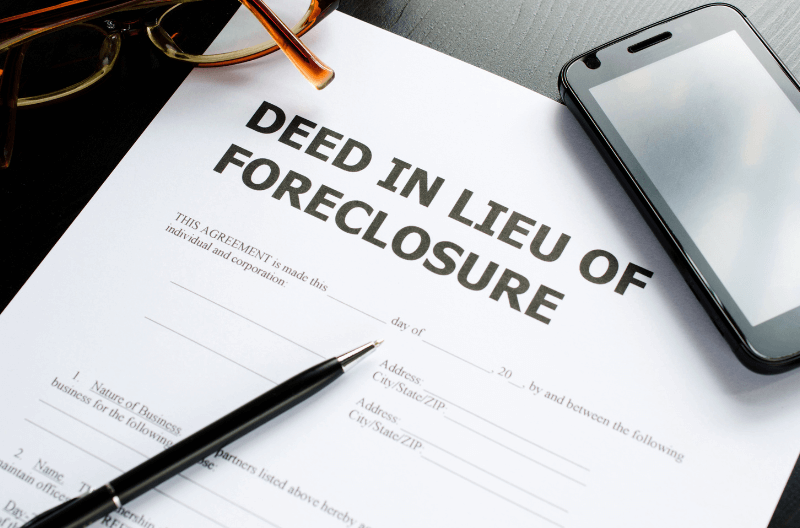
Owning a home is an aspect of the American Dream that can sometimes pose challenges. If you find yourself struggling to meet your mortgage payments due to events like job loss or medical emergencies it can be overwhelming.
For homeowners in Texas in Houston feeling trapped by their mortgage with no options for refinancing can be disheartening. Nevertheless there are solutions and strategies to help navigate this tough situation. Whether it’s considering alternatives such as sales or deed in lieu of foreclosure or opting to sell to Houston cash home buyers there are ways to minimize the turmoil and take charge of your financial well being.
This guide aims to uncover these possibilities and offer advice for individuals seeking a way out of their mortgage while safeguarding their credit score from harm. With the information and support turning a financial setback into a chance for a new beginning is within reach.
How to Legally Get Out of Your Mortgage in Texas
One legitimate approach in Texas for exiting your mortgage is negotiating a ‘loan modification‘, with your lender. This process involves adjusting the terms of your loan to make monthly payments more manageable. If you’re having trouble keeping up with your mortgage payments the lender might be willing to extend the loan term lower the interest rate or even reduce the loan amount based on your circumstances. However, it’s crucial to prove that you’re facing hardship that affects your ability to pay and provide evidence of income to show that you can manage the new payment terms.
Another possibility is ‘forbearance,’ where the lender lets you temporarily halt or decrease your mortgage payments. This can offer relief especially if your financial difficulties are temporary.
As a resort you could consider ‘strategic default ‘. Be cautious as it could negatively impact your credit score. This involves choosing not to make mortgage payments prompting the lender to start foreclosure proceedings. It’s wise to seek advice, from an estate or legal professional before opting for any of these choices to fully grasp how they might affect your credit history and future borrowing opportunities.

Options If You Can’t Pay Your Mortgage
If you find yourself unable to meet your mortgage obligations, there are a number of options available to you. Below we’ll take a look at the most common
Contacting Your Mortgage Provider
Let’s now explore the steps when reaching out to your Mortgage Provider. The initial proactive measure, in handling any mortgage troubles is to get in touch with your mortgage provider. It’s important to maintain honest and timely communication with them. Don’t delay until you’ve missed payments or received a foreclosure notice before making contact. Speaking with your lender’s hardship team can lead to solutions that you might not have been aware of previously. Be transparent about your situation. Inquire about potential relief options like refinancing, loan modification, or forbearance. It’s also beneficial to inquire about FHA loan alternatives or any other government-supported aid programs.
Keep in mind that mortgage lenders generally prefer to avoid the time-consuming process of foreclosure if possible so they may be more willing to cooperate than you expect. However, make sure to review and understand the terms of any proposed solution before agreeing and seek guidance from a real estate professional or attorney if necessary.
Contact a HUD-Approved Housing Counseling Agency
Another option when dealing with mortgage challenges is seeking help, from a housing counseling agency approved by HUD.
These organizations receive support, from the U.S. Department of Housing and Urban Development (HUD) to assist individuals looking to buy a home or manage their mortgage effectively. Their goal is to provide guidance on matters, available options and the process of purchasing a home or obtaining a mortgage.
They offer advice on solutions like refinancing, loan modifications, forbearance and strategic default. These counseling services are typically offered for free or at a cost. They not help with managing your mortgage. Also, provide support in understanding your credit report enhancing your credit history, and preparing for down payments and closing expenses.
By working with these organizations you can gain insights into your remaining mortgage amount, repayment choices, and strategies to avoid foreclosure on your home. It is crucial to seek assistance from HUD-approved agencies to protect yourself from scams or costly services.
Loan Modifications
Loan modifications involve making lasting changes to one or more terms in your mortgage contract. This could include adjusting your interest rate extending the loan term duration or converting an adjustable-rate mortgage into a fixed-rate one. The primary aim of loan modification is to ensure that your monthly payments align, with your circumstances.
Mortgage companies often provide loan adjustments as a solution, for individuals experiencing financial challenges. The process entails submitting an application receiving approval from your mortgage provider and undergoing a trial period to ensure you can manage the updated mortgage payment. Keep in mind that your lender prefers to assist you in keeping your home and staying current on your mortgage rather than dealing with the lengthy foreclosure process.
It’s worth noting that opting for a loan modification could potentially have effects on your credit report. While it’s generally less damaging than facing foreclosure it may still impact your credit score negatively. Seek advice from a counselor approved by HUD or a real estate expert to comprehend how a loan modification might influence your status before moving forward.
Refinancing
Refinancing serves as a method for handling your mortgage debt. It involves replacing your mortgage with one usually featuring a lower interest rate or more manageable monthly payments. The new home loan pays off the one essentially resetting the repayment timeline.
The benefit of refinancing lies in its ability to decrease mortgage payments and consolidate debts. Free up funds for home renovations or other significant expenses. However, refinancing may not always be the choice, for every homeowner.
It’s crucial to take into account factors, like closing expenses how long you intend to stay in the house, and your overall financial health.
When considering refinancing it’s important to keep in mind that there are associated costs such as origination fees, application fees, and a potential penalty for paying off your mortgage. Therefore it’s vital to calculate these expenses to ensure that refinancing is a financial decision.
Refinancing to an interest rate or shorter term can lead to savings over the duration of your loan. Conversely, if you’re facing difficulties with payments switching to a longer-term loan may decrease your monthly costs although you’ll end up paying more in interest over time.
Before making a decision on refinancing it’s wise to seek advice from an advisor to understand its impact on your financial situation. Additionally, remember to review your credit history and credit report so that you’re well-positioned to secure terms for your mortgage.
Forbearance
Forbearance serves as another option for homeowners experiencing challenges in meeting their mortgage obligations. Essentially forbearance involves an agreement between the borrower and their mortgage lender allowing for either cessation of payments or reduction of payments to a level, for an agreed-upon period.
The lender has agreed not to start the foreclosure process giving the borrower some time to breathe during a crisis. However, it’s important to note that forbearance does not mean the loan is forgiven. Once the forbearance period is over borrowers will need to repay the missed or reduced payments. This can be done in a lump sum or, by spreading out payments over a period. Another option is for the mortgage lender to add the missed payments to the end of the loan term which would extend the duration of the mortgage.
It’s worth keeping in mind that opting for forbearance may impact your credit history although it is generally less harmful than facing foreclosure or bankruptcy. If you are thinking about entering into forbearance it’s crucial to maintain communication with your lender. Make sure you fully comprehend all aspects of the forbearance agreement, including how and when you will need to make up for any missed payments. Lastly, remember to explore all alternatives and consider seeking guidance from an advisor or a reputable real estate professional before reaching a decision.
Short-Selling Your House
Short-selling your house through a sale is another strategy to consider when dealing with financial difficulties. A short sale involves selling your property for less, than what you owe on your mortgage.
To pursue this option you’ll need the mortgage lender’s consent, which is usually considered when the value of the home has declined and the homeowner is, in a situation where they owe more on their mortgage than the property is worth.
In a short sale scenario, the money from selling the house goes to the lender. There’s a chance that the homeowner can negotiate to have the remaining mortgage balance forgiven. While this might appear as a way it’s crucial to be aware that short sales could have adverse effects on your credit history and may not absolve you of all financial responsibilities linked to the property.
To kick off a sale process you must reach out to your lender. Explain your current financial challenges. If they agree to proceed with a sale you’ll collaborate with a real estate agent to list and sell your home. The lender will then. Approve the terms of the sale. Keep in mind that completing a sale may take longer than a sale and there’s no guarantee that the lender will accept an offer from potential buyers.
As with any choice, it’s advisable to seek advice from a financial advisor who can assist you through this process. Having an understanding of both repercussions and alternatives will enable you to make informed decisions suitable, for your circumstances.
Deed-in-Lieu of Foreclosure
Giving up your property through a deed in lieu of foreclosure is an approach, for homeowners facing difficulties. By transferring ownership to the mortgage lender you can skip the stressful foreclosure process. Essentially you’re relinquishing your home in exchange for the lender forgiving your mortgage debt.
Before opting for a deed in lieu it’s crucial to grasp its implications. While it can ease burdens it has a significant impact on your credit history akin to foreclosure or a short sale. A deed in lieu will appear on your credit report for years affecting your ability to qualify for mortgages.
To pursue this route you must reach out to your mortgage lender. Indicate your interest in a deed in lieu. The lender will request proof of hardship and property valuation. Following an assessment of the property if the lender consents you’ll execute paperwork transferring the property ownership to them.
Keep in mind that like a short sale, a deed in lieu of foreclosure is not a permanent solution.
The lender might not be on board with this plan especially if there are mortgages or liens tied to the property. It’s always wise to seek advice from an advisor or a trusted real estate expert before making such a decision. Make sure you fully understand the implications and explore choices like refinancing, loan adjustments, or forbearance which could offer a favorable solution to your mortgage troubles.
Sell to a Cash Homebuyer
Consider selling your home to cash buyers in Fort Worth, such as Cash Home Buyer as another avenue for getting out of your mortgage. These buyers specialize in hassle free transactions that can help you sidestep foreclosure and protect your credit score. The process is simple. Share details about your property. They will likely present you with a cash offer, within 24 hours.
Cash Home Buyer and similar companies purchase properties ‘as is removing the need for you to worry about cleaning, fixing or staging your home. This can save you time, effort and money. Additionally since they offer cash for homes the closing process is fast. Can often be completed within a week.
This process is much quicker compared to the real estate transactions involving mortgage approvals, which can drag on for months. However it’s worth noting that the cash offer you receive may fall below the market value of your home. Cash buyers assume the risk of purchasing your property making repairs and selling it later which’s why they typically offer less, than what you might get by selling through a real estate agent. Nonetheless the speed and convenience of this type of transaction can outweigh this drawback especially if you are in need. Moreover, cash buyers do not charge high agent fees. May even assist in covering closing costs.
It’s crucial to conduct research before selecting a cash buyer. Make sure they have a reputation, reviews and can demonstrate their financial capability. Working with a cash buyer like Cash Home Buyer can lead to an efficient transaction that eases your transition to your new home, with minimal stress.

Things to Watch Out for When Trying to Get Out Of Your Mortgage
When looking to exit your mortgage agreement here are some factors to consider:
- Prepayment Penalties: Certain mortgage agreements contain clauses that penalize repayment of the loan balance. Make sure to review your mortgage agreement to determine if any such terms are relevant, to you.
- Impact on Credit Score: Failing to make your mortgage payments or facing foreclosure can significantly damage your credit score. It’s advisable to consider alternatives, like selling your home or pursuing a cash-out refinance to safeguard your credit rating.
- Mortgage Rates and Refinancing: Opting for a mortgage refinance could be a way to lower your payments. However, it’s important to remember that refinancing comes with associated costs. Take into account the closing expenses. Verify that the new interest rates justify the refinancing decision.
- Home Equity: Considering the equity you’ve built up in your home it might be worth exploring options, like a home equity loan or second mortgage before deciding to sell. However, it’s important to weigh the risks associated with these choices.
- Seek professional advice: It’s advisable to seek guidance from a realtor or financial advisor registered with NMLS to help navigate your options. They can assist in assessing your home’s value explaining the implications of a quitclaim deed and even aiding in negotiations for a sale.
Ultimately understanding your mortgage terms and the potential consequences of your decisions is crucial. Take into account your status, property value and future plans before reaching a conclusion.

Conclusion
To sum up, selling your home to a buyer could offer a solution, to your mortgage challenges. It’s essential to approach this process knowledgeably by evaluating your home’s value and equity comprehending your mortgage agreement terms and considering how it may impact your credit score. If maintaining your mortgage becomes unsustainable. If foreclosure looms ahead selling could potentially help you settle outstanding loan amounts and find a new home better suited to your financial circumstances.
It’s crucial to seek assistance, from an advisor in this situation. They can provide guidance to make sure you receive a cash offer and assist you in handling challenges like mortgage rates and refinancing choices. Keep in mind that the aim isn’t to sell but to secure a deal that serves your best interests, in the long term.
DISCLAIMER: This article is meant for educational purposes only and is not intended to be construed as financial, tax, or legal advice. Cash Home Buyer always encourages you to reach out to an advisor regarding your own situation.
